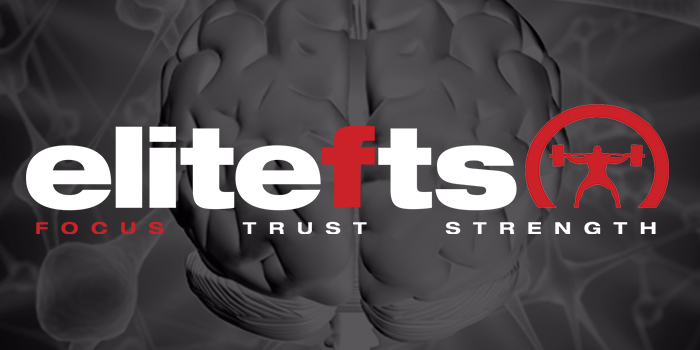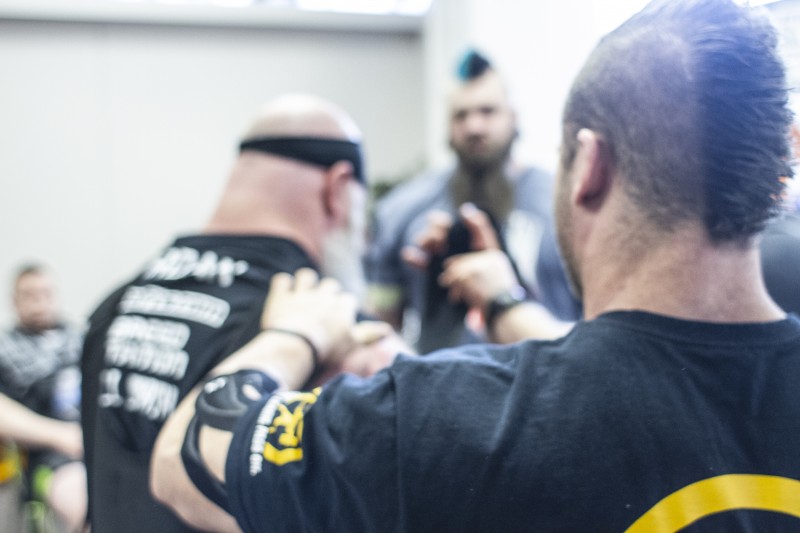
Originally published in June of 2013
We've recently talked a bit about thinking. Let’s shift gears and talk about a type of thought—focus. Time and time again, you hear people say that you need to focus or that you aren't focused. Focus, focus, focus. It’s all about focus. But what is focus? If you don’t know what it is, you can’t focus.
Focus is presence.
Remember thinking, right? And how we had the time orientation? If you think in the past, you aren't in the moment. If you’re thinking about what happened, what went right, and what went wrong, this may mess you up in your current state. If you’re thinking about the future, you’re prone to the 'what ifs' that lead to anxiety and paralysis by analysis. Focus can only occur when you're totally in the moment and engaged in what’s going on.
All too often, there are people who aren't completely in the moment. They’re in the future, and they walk on to the platform at the wrong time. These people are often thrown off their performance for the rest of the competition. Then they're so afraid of doing the same thing, that they have great amounts of anxiety and can’t make a lift outside of the warmup room to save their lives.
Focus is control.
You aren't working yourself into a blind rage. You know what needs to be done and how you need to do it. I was often a victim of this in my early lifting career. I went into blind rages, foaming at the mouth, and attacking the bar. I didn't come back into focus until after the lift and only then did I find out whether or not I got the lift, and what I did wrong. Within my rage, I was out of control mentally and it showed. When I learned how to stay calm and focused on what I needed to do, my lifting improved drastically.
In the optimal arousal article, we talked about the inverted U theory and how performance didn’t increase with arousal. If you got over aroused, you had poor performance. If you're focused, you're under control. If you're out of control, you aren't focused.
Focus is composure.
Regardless of whether or not you get a lift or whether or not the lift went perfectly, you must stay composed. If you're focused, you can keep yourself from blowing up and throwing chairs, breaking things, or having a general temper tantrum. I’ve never seen anyone who lost their composure have one of these tantrums and then come back and get a lift. They don't have the focus it would take to figure out what they did wrong and correct it for the next lift. I know lifters who have lost composure, had a tantrum, and then came back to do the exact same thing on the next lift. With a bit of composure to ask the judges or friends what happened, the next lift is often easily attainable.
Personally, I know I've had those issues. One time, in particular, I missed my squat opener, which was a weight that I had tripled three weeks before. I wouldn’t listen to anyone after the attempt because I was livid. How could I have missed such an easy attempt? I had my tantrum of cursing and throwing my wraps and belt and came back and did the same thing. I felt completely defeated after that lift, but I was now able to listen.
A friend of mine said, “Dude, your suit is pulled up too high in the back. Let’s pull that up a bit and you won’t shoot your hips up like that.” Sure enough, I came back and smoked the weight just like I did in the gym. I asked him, “Why didn’t you tell me that before?” He replied, “I tried, but you were too busy acting like a three-year-old.” I’ve often heard the saying "no one cares what you missed; they only care what you got." Why waste energy on something that doesn’t matter?
Focus is concentration.
You know what needs to be done, so focus on what it takes to do that. You've found your cues and have gone through those time after time. You've seen the lift in your head. You've felt yourself performing the lift, and you’ve done your visualizations. You've found what matters and have paid attention to that. When you're going up for an attempt, there are many different stimuli and cues from different people. It’s easy to find one that doesn’t matter and pay attention to that. For instance, a friend of mine squatted a lifetime goal of 750 pounds at a bodyweight of 148 pounds in a meet. He went up to the platform and was so excited from all of his friends going nuts that he didn’t wait for the rack command. That cost him the lift. He had the strength, the depth, and the form, but he didn’t have the concentration. Through that momentary lack of focus, he missed out on achieving his lifetime PR.
Focus is confidence.
You must approach every lift with the supreme belief that you will be victorious in your battle with the bar. You know that you’ve done the work, you've grooved your form, worked in your gear, and dialed in everything. You've made the choice to think correctly by thinking only positive thoughts and keeping negative thoughts out of your head. My advisor in graduate school, a Vietnam veteran marine, says, “You never go into a battle that you haven’t already won.” Therefore, you must have the right mindset with how you approach your attempts. If you have the slightest bit of doubt in your mind, you'll miss the lift or even possibly get hurt.
Focus is trust.
It is the trust in your training. It is the trust in your coach. It is the trust in your equipment. It is the trust in yourself that you will make the attempt.
As you've seen, focus is many things, but there is one overall arching thing—focus is a thought. All the things we’ve talked about are thoughts and completely controllable by you. During any lift, at any competition, at any training session, you will always make two choices. You will either choose to be focused or you will choose not to be focused. You will either control all your thoughts to be focused or you won’t. There isn't anything outside of you that will help in this. It is all inside your head. It's tough to do all these things, but it’s a skill that you can build. Building the skill of focus is something that you need to become strong(er) of mind and strong(er) of body.











